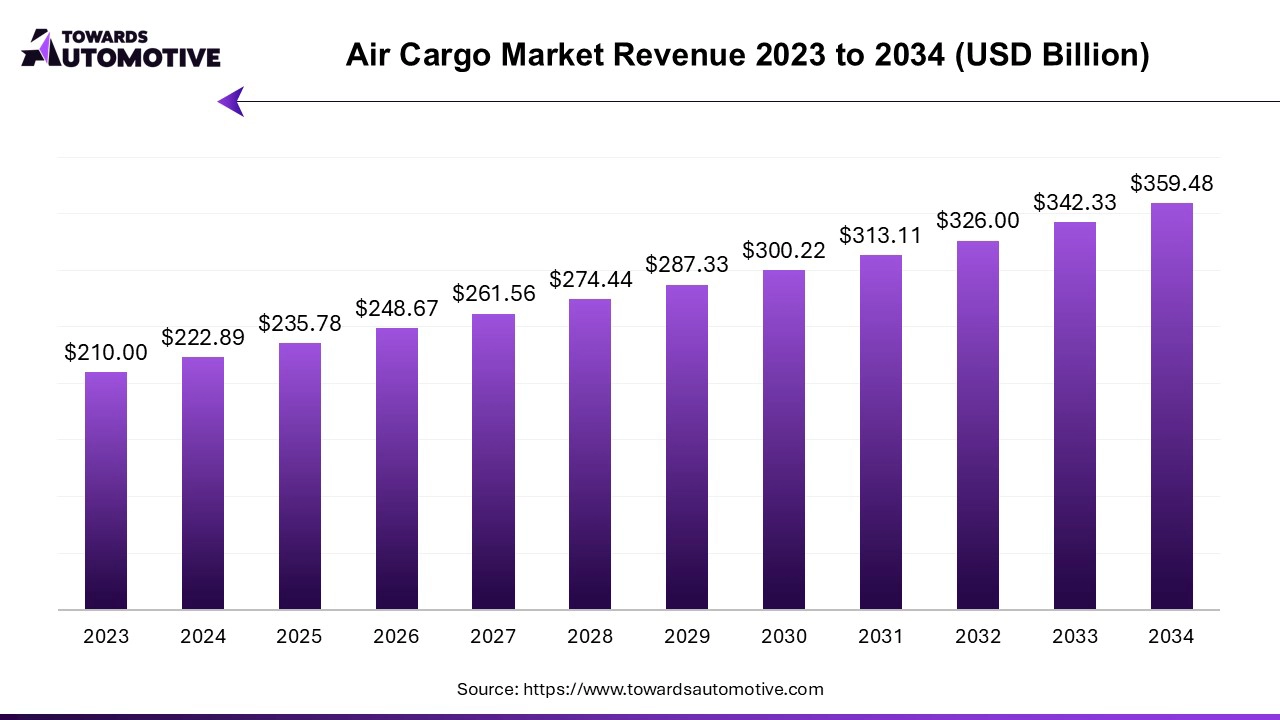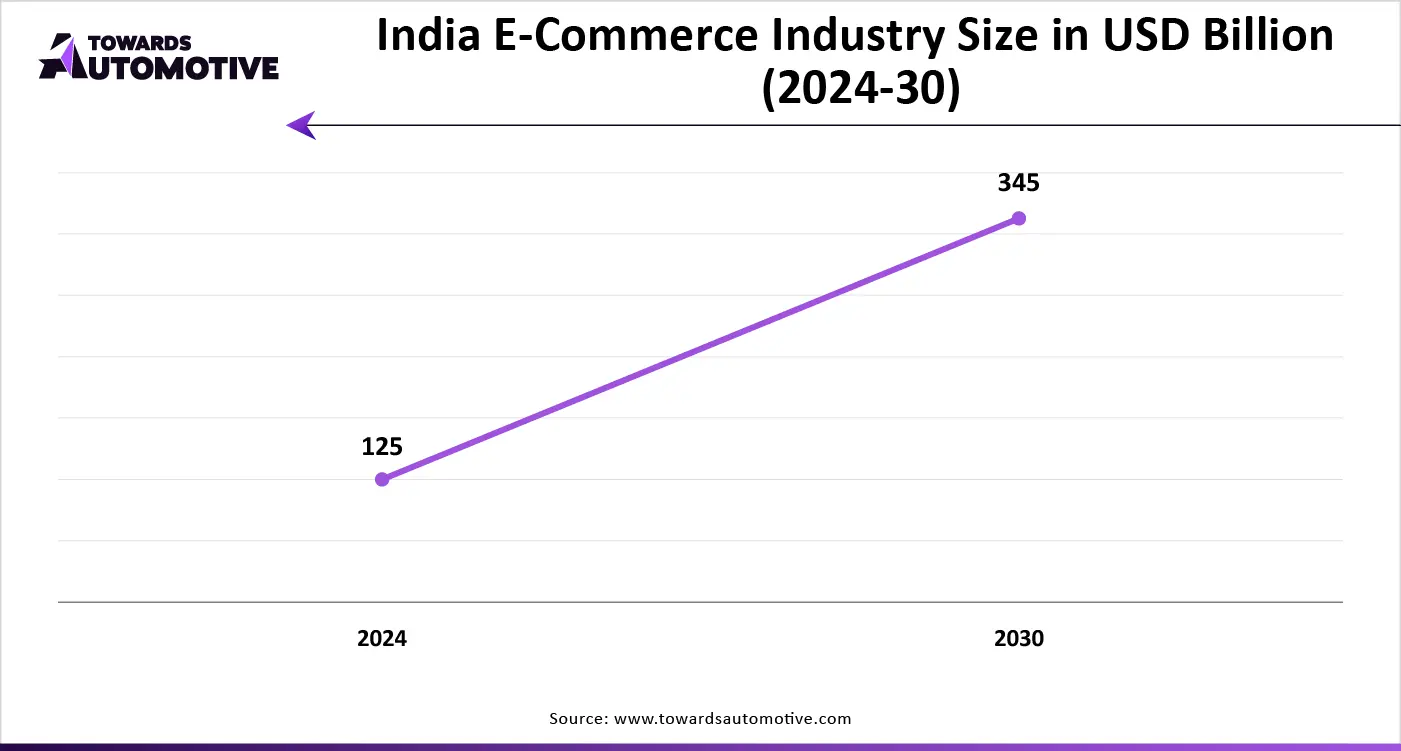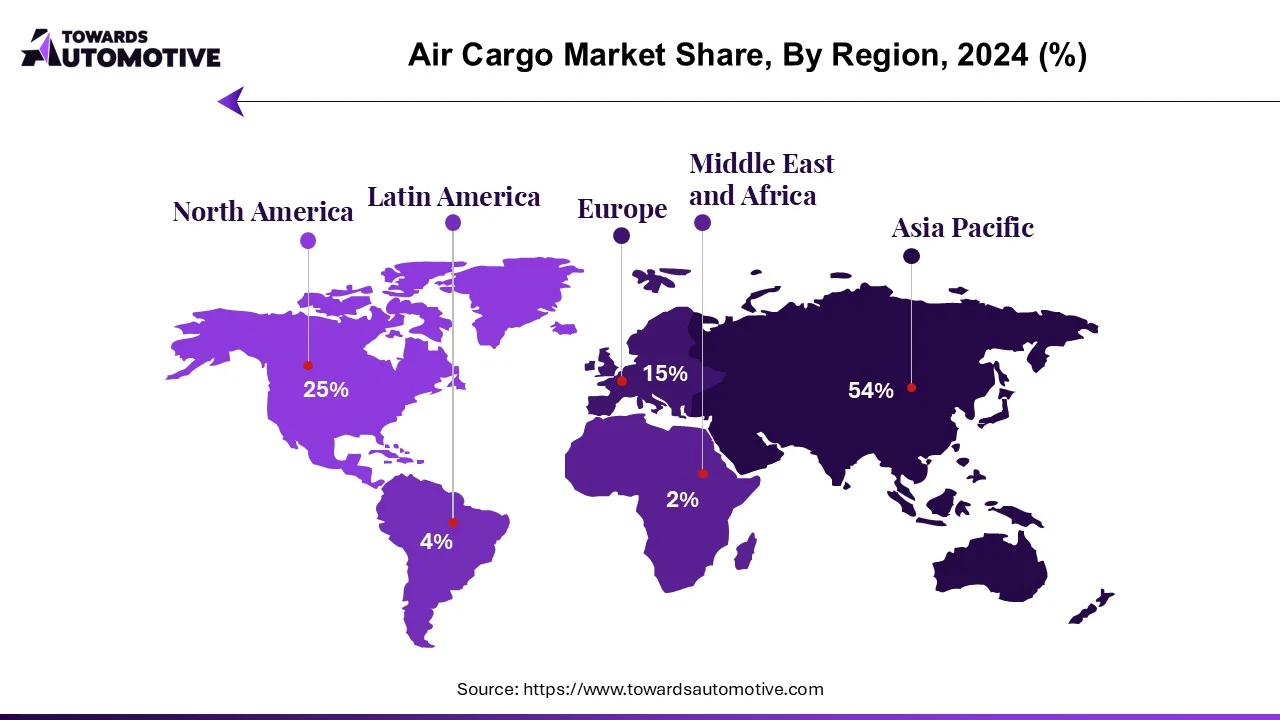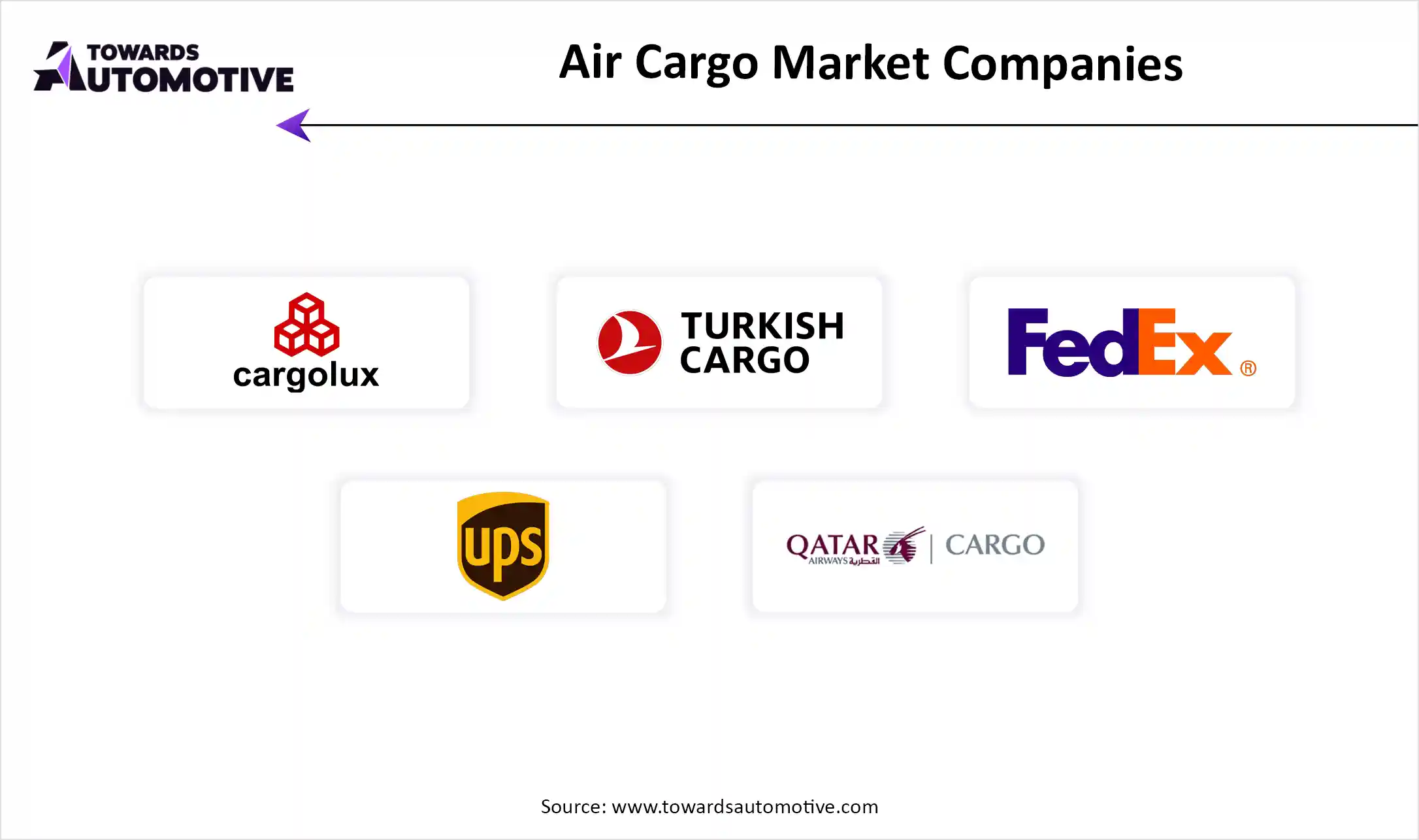October 2025
The air cargo market is predicted to expand from USD 235.78 billion in 2025 to USD 359.48 billion by 2034, growing at a CAGR of 5.01% during the forecast period from 2025 to 2034.

The air cargo market is a prominent segment of the logistics industry. This industry deals in delivering goods through airlines in different parts of the world. There are several types of services provided by this sector comprising of express cargo services and regular cargo services. These services are designed for delivering various types of shipments including domestic shipments and international shipments. The end-user of this sector consists of pharmaceutical and healthcare, consumer electronics, automotive, retail, food & beverage and some others. The growing demand for air cargo services from the e-commerce sector has boosted the market expansion. This market is predicted to rise significantly with the growth of the airlines industry around the globe.

| Metric | Details |
| Market Size in 2024 | USD 222.89 Billion |
| Projected Market Size in 2034 | USD 359.48 Billion |
| CAGR (2025 - 2034) | 5.01% |
| Leading Region | North America |
| Market Segmentation | By Type, By Service, By Destination and By End User |
| Top Key Players | China Airlines Cargo, Cargolux Airlines International, Turkish Cargo, FedEx Express, UPS Airlines, Qatar Airways Cargo |
The major trends in this industry consists of sustainable aviation initiatives, expansion of e-commerce and integration of advanced technologies.
Sustainable Aviation Initiatives
Government of several countries such as India, the U.S., UK, Dubai and some others are launching initiatives for enhancing sustainability in the aviation sector.
Expansion of E-Commerce
The rise in number of e-commerce platforms globally has enabled people to buy and sell products from the comfort of their home.
Integration of Advanced Technologies
The integration of advanced technologies such as AI, IoT, big data analytics and some others in logistics sector is an ongoing trend in the industry.
Service Type Insights
The general segment dominated this industry. The growing demand for regular air cargo services from several sectors such as automotive and consumer electronics and some others has boosted the market growth. Additionally, numerous market players are investing heavily for launching general air cargo services to deliver general products such as mobile phones, laptops, smart watches and some others has driven the industrial expansion. Moreover, the rising popularity of e-commerce platforms has increased the demand for regular air cargo services, thereby driving the growth of the air cargo market.
The express segment is predicted to rise with a significant CAGR during the forecast period. The rising adoption of express cargo services for transporting military equipment in warfare zones has boosted the market expansion. Also, the increasing use of these services for transporting perishable items such as meat, sea foods, food products and some others is crucial for the industrial expansion. Moreover, the growing application of express cargo services from pharmaceutical sector for transporting items such as medicines and vaccines is likely to boost the growth of the air cargo market.
The domestic segment held the largest share of the industry. The growing adoption of airways for transporting goods from one state to another has contributed to the market growth. Additionally, the rising popularity of national e-commerce brands such as Flipkart, Snapdeal, Meesho and some others has enabled people to buy and sell products, thereby driving the industrial expansion. Moreover, rapid investment by market players for launching domestic air cargo services is expected to drive the growth of the air cargo market.
The international segment is likely to grow with a considerable CAGR during the forecast period. The rising demand for imported products such as watches, bags, perfume and some others has boosted the market expansion. Additionally, the growing interest of air cargo providers to launch service that can connect developed nations with isolated countries is further contributing to the industrial growth. Moreover, ongoing geo-political issues has increased the demand for advanced military equipment, thereby driving the growth of the air cargo market.
The retail and e-commerce segment led the industry. The growing proliferation of smartphones has enabled people to sell and purchase goods in online-platforms, thereby driving the market growth. Additionally, rapid investment by government of several countries such as the U.S., Canada, India, China, France and some others for developing the e-commerce sector is further adding to the industrial expansion. Moreover, numerous market players are launching air cargo services to cater the needs of e-commerce and retail sector coupled with the increasing emphasis on developing cross-border trade is likely to drive the growth of the air cargo market.
The food and beverage segment held a significant share of the market. The growing investment by government of several countries such as the U.S., UK, Saudi Arabia, India and some others for developing the food and beverage industry has boosted the market growth. Additionally, the increasing trend of international wines and intercontinental cuisines in developed nations along with rapid consumer preference towards frozen foods is further contributing to the overall industrial expansion. Moreover, various cargo services launched by market players for enhancing the supply chain of food and beverage sector is anticipated to boost the growth of the air cargo market.

North America held the highest share of the air cargo market. The growing adoption of advanced air cargo services due in major automotive brands such as Tesla, Ford, Rivian, Buick and some others has boosted the market growth. Additionally, numerous government initiatives aimed at enhancing sustainable logistics along with rapid development in the e-commerce sector is playing a vital role in shaping the industrial landscape. Moreover, the presence of several market players such as FedEx Express, United Parcel Service, Atlas Air and some others is projected to foster the growth of the air cargo market in this region.
U.S. is the major contributor in this region. In the U.S., the market is generally driven by the growing adoption of express air cargo service by several military equipment companies such as Lockheed Martin, L3Harris Technologies, Inc., Northrop Grumman Corporation and some others. Moreover, the rising demand for processed food and frozen items among office-goers is driving the industry in a positive direction.
Asia Pacific is expected to grow with the highest CAGR during the forecast period. The growing adoption of air cargo services from several industries such as consumer electronics and retail is driving the market growth. Additionally, the rising demand for imported wines coupled with technological advancements in the logistics sector is shaping the industry in a positive direction. Moreover, the presence of various air cargo providers such as China Airlines, Nippon Express, Singapore Airlines and some others is likely to drive the growth of the air cargo market in this region.
China dominated the market in this region. The growing demand for air cargo services from the e-commerce sector for transporting goods to different countries has driven the market growth. Additionally, rapid adoption of eco-friendly aviation techniques along with ongoing development in the electronics industry boosts the industrial expansion.

The air cargo market is a highly competitive industry with the presence of several dominating players. Some of the prominent companies in this industry consists of China Airlines Cargo, Cargolux Airlines International, Turkish Cargo, FedEx Express, UPS Airlines, Qatar Airways Cargo, Emirates SkyCargo, DHL Aviation, Korean Air Cargo, Cathay Pacific Cargo, Singapore Airlines Cargo, and some others. These companies are constantly engaged in providing air cargo services and adopting numerous strategies such as collaborations, launches, partnerships, joint ventures, business expansions, acquisitions, and some others to maintain their dominance in this industry.
By Type
By Service
By Destination
By End User
By Region
Forecasts suggest that the automotive spring market will expand from USD 9.26 billion in 2024 to USD 27.38 billion by 2034, with a CAGR of 11.45% duri...
October 2025
October 2025
October 2025
September 2025
We offer automotive expertise for market projections and customizable research, adaptable to diverse strategic approaches.
Contact Us